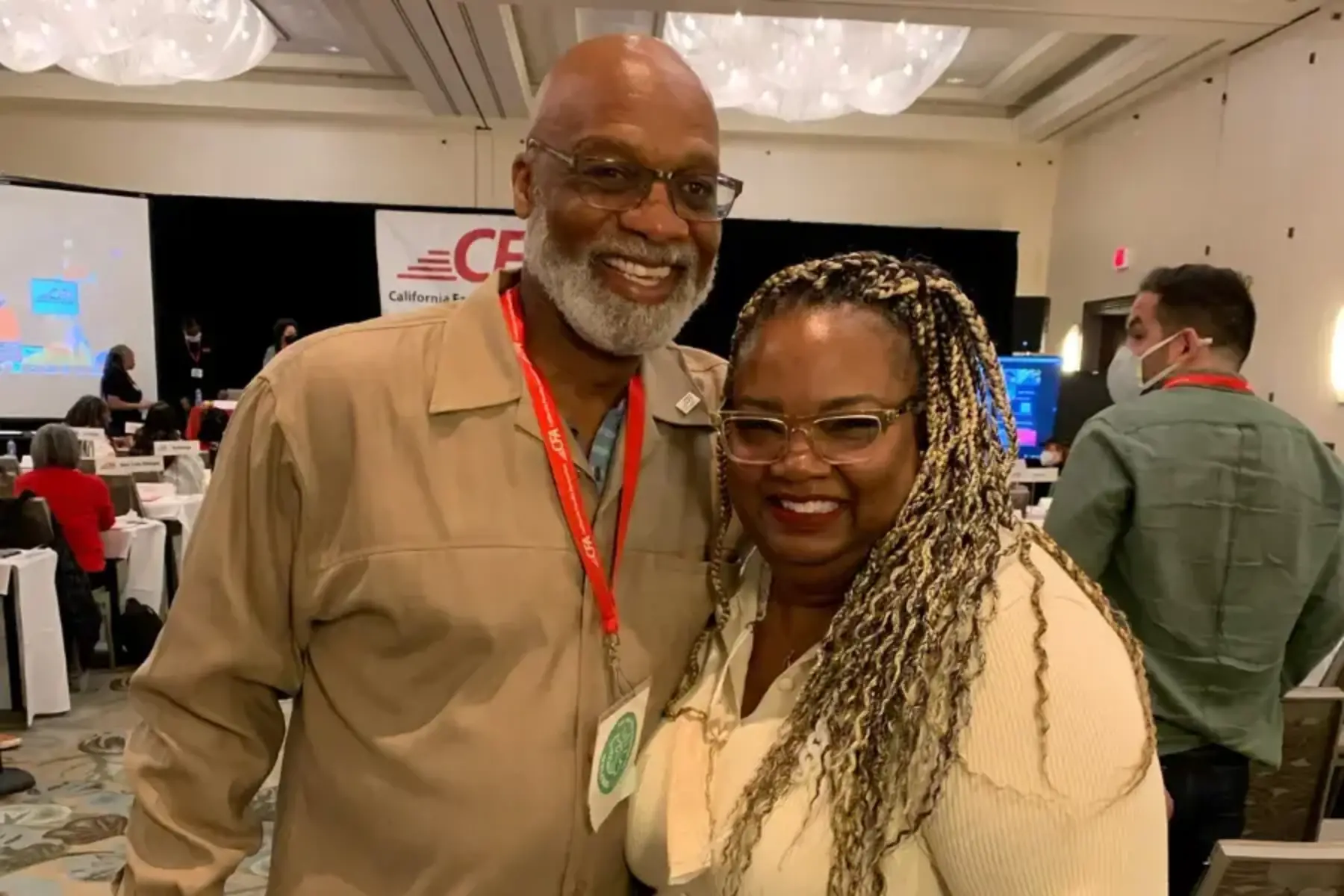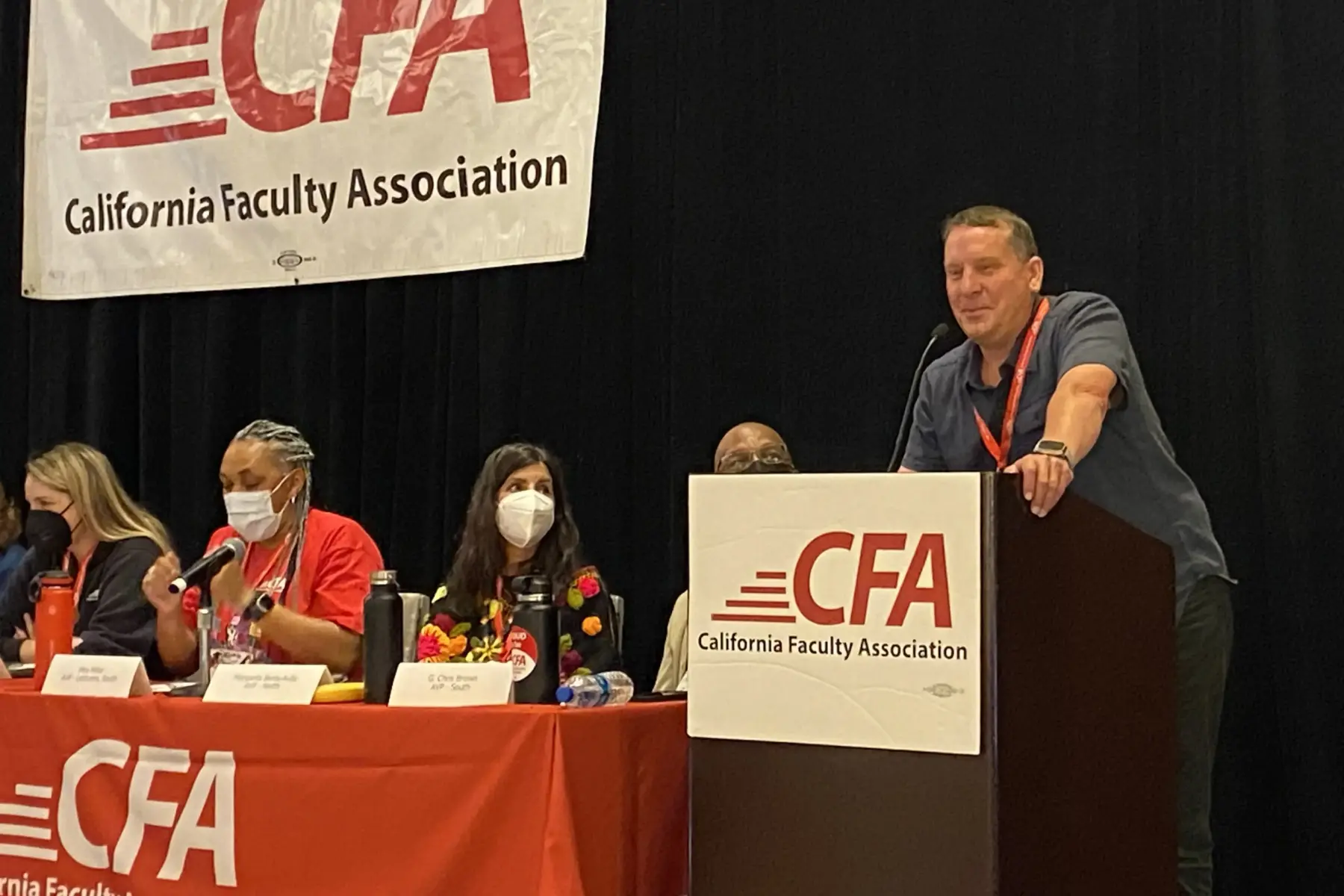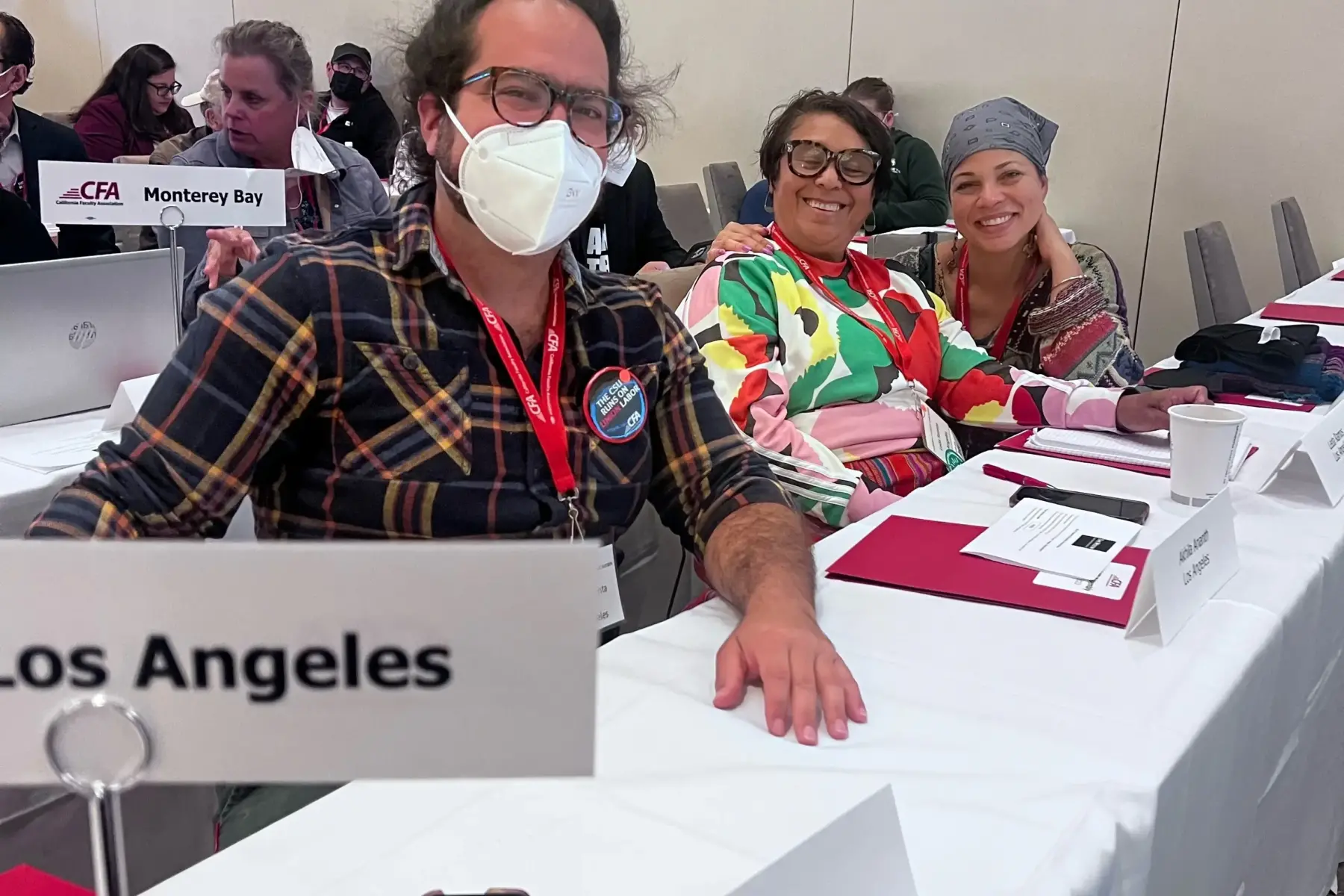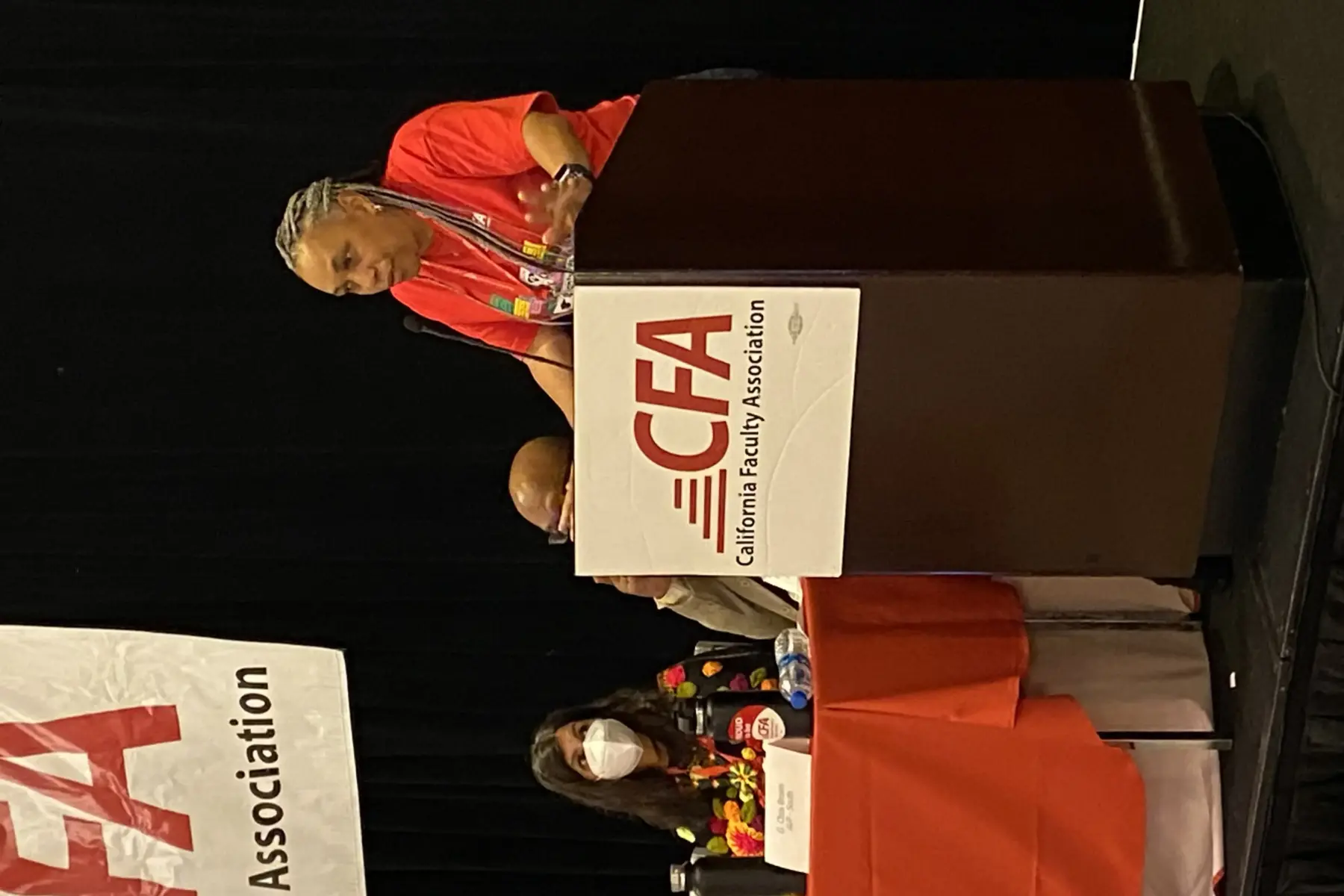Members Discuss Survey Results, Open Bargaining
At our 96th Assembly last week – held in-person and virtually – members prepared for upcoming negotiations, beginning with an initial overview of survey results during a bargaining panel discussion.
More than 7,300 members completed the survey from February through April. Findings show:
- 91 percent of respondents feel their salary has not kept up with inflation.
- 63 percent are spending more than 31 percent of their salary on rent or mortgage payments.
- Only 10 percent have not experienced challenges in providing for themselves and their family.
- 70 percent feel they don’t have a reasonable work-life balance.
- More than half said they would strike if necessary to achieve better working conditions and equity for faculty.
- Nearly 85 percent support obtaining raises that target pay equity for the lowest paid faculty.
- Two out of three favored expanding paid parental leave from 30 days to a full semester.
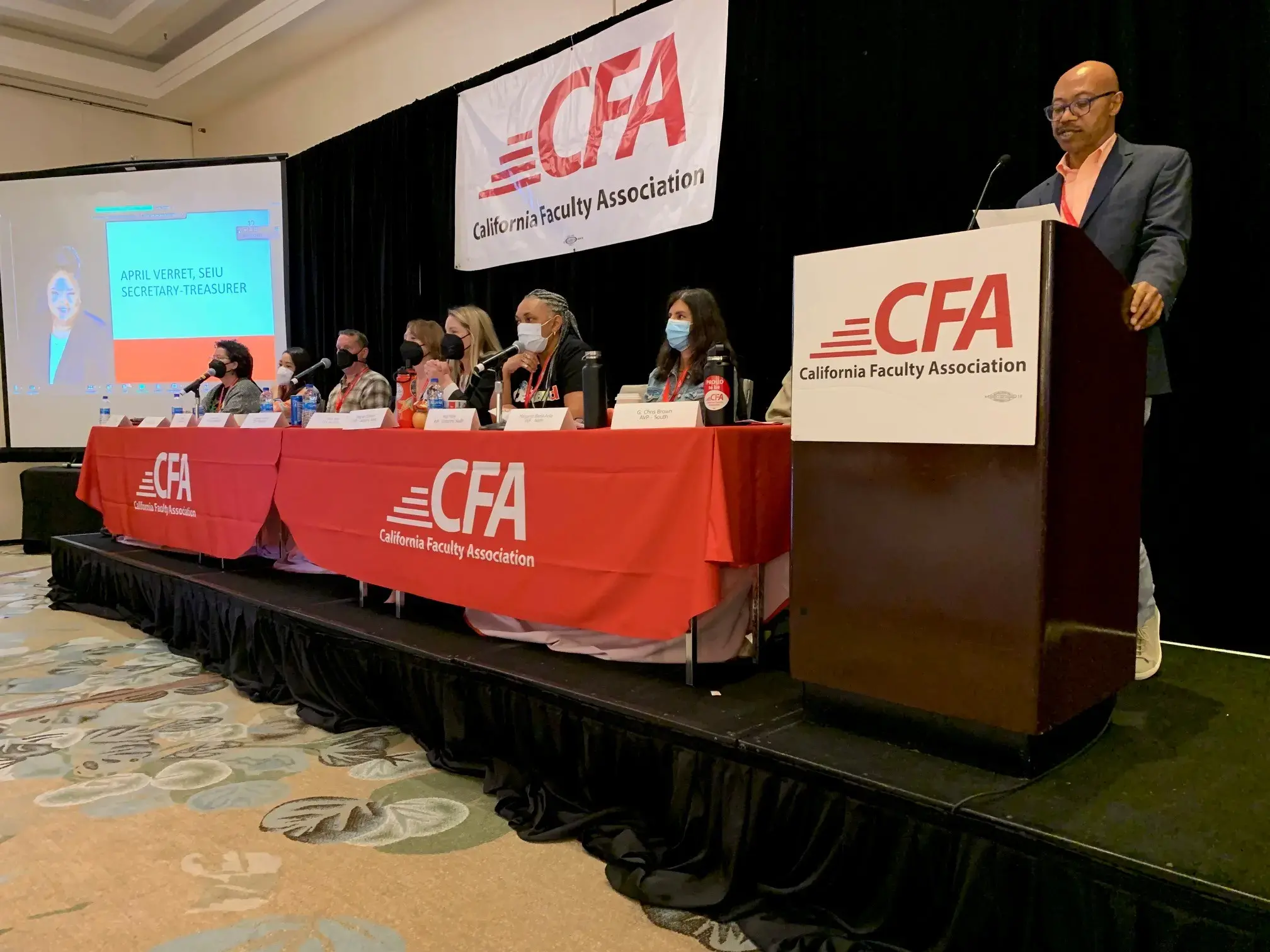
“We’re bargaining for all of us. And this is so important to tell our folks on campus. Yes, I mean you, lecturers. Yes, I mean you, people of color. Yes, I mean you who are experiencing multiple intersecting oppressions, all of us,” said Sharon Elise, Associate Vice President of Racial & Social Justice, South, who opened the panel discussion. “Let’s bring all of us into the movement and address all of our pain and struggle, librarians, counselors, coaches, retiring faculty, and newly beginning faculty, faculty whose existence is precarious. That’s an absolute crime. And I want you to use that word precarious because it really aptly describes the position of too many of our faculty. How can this happen to what used to be a world class university system?”
The Assembly bargaining panel also discussed our plans to participate in open bargaining where negotiation sessions are open to members both in person and on Zoom. Bargaining Team members will work with our Disability Caucus to ensure access and accommodations.
“We’re ready to work together on solidarity, we’re stronger together. And we’re ready to do whatever it takes.”
Jason Rabinowitz, Teamsters Local 2010 secretary-treasurer
Members are focused on building power and participation to achieve better working conditions, safer campuses, equity for faculty from historically marginalized communities, and improved pay.
Collective action and solidarity with our sibling CSU unions will be key to successful contract bargaining over the next 18 months.
We know our sibling unions are working toward the same goals. Jason Rabinowitz, Teamsters Local 2010 secretary-treasurer, sat on our bargaining panel and shared their experience at the bargaining table. Teamsters are the electricians, elevator mechanics, plumbers, carpenters, locksmiths, facilities workers, and other trades workers who keep CSU campuses safe and running smoothly.
“We’re very clear about that, very proud that we, with CFA and all the other unions, are meeting regularly and we hope to work together, we hope to take collective action, because, you know, we think our work is pretty important,” Rabinowitz said. “We’re ready to work together on solidarity, we’re stronger together. And we’re ready to do whatever it takes. We know you are as well and I look forward to that, that unity and that solidarity to finally get the fairness that you deserve, that we deserve.”
Join California Faculty Association
Join thousands of instructional faculty, librarians, counselors, and coaches to protect academic freedom, faculty rights, safe workplaces, higher education, student learning, and fight for racial and social justice.
